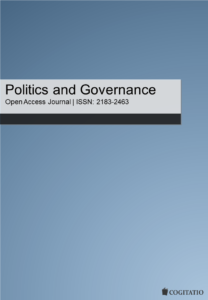A new special issue in the open-access journal Politics & Governance explores the possibility of transparency ‘excess’ in the face of the European Union’s constrained capacity to deliver.

The special issue, entitled “Access or Excess? Redefining the Boundaries of Transparency in the EU’s Decision-Making”, gathers 8 original academic pieces on the role of transparency in ensuring the legitimacy of decision making in the EU. The articles comes from the fields of political science, law, public administration, and history, and are delivered by scholars from France, Belgium, the Netherlands, the United Kingdom, and Finland.
A red thread throughout the special issue is the heterogeneity of manifestations of the transparency concept in the EU context, and their shared tendency towards greater constraints of confidentiality over time. Yet as the editors note in their introduction, for a variety of reasons, “[t]ransparency is […] sometimes blamed for slowing the decision-making process and even for hampering its success”. The special issue thus sets itself the task of exploring the behavioural dynamics of transparency ranging from achieving democratically desirable changes to informal institutional accommodation of transparency obligations.
The contributions in the special issue each explore an aspect of this conundrum, ranging from an analysis of the literature relating transparency to throughput legitimacy, the limits of regulating lobbying transparency, creating openness through European parliamentary speeches, efforts to limit the opacity of legislative trilogue negotiations as manifested in the recent De Capitani court case, and the historical development of creating safe space for public-interest whistleblowers within the European institutions.
The special issue is edited by Camille Kelbel (ESPOL, University of Lille), Axel Marx (Centre for Global Governance Studies, University of Leuven), and Julien Navarro ((ESPOL, University of Lille/Vienna School of International Studies), and is the outcome of a conference that was held in the context of the RECONNECT project in Lille in November 2019.
TrUE project researcher Maarten Hillebrandt contributed a commentary assessing the evolving role of documents as a vessel of the public right of access in the EU.
The full special issue (open access) can be accessed here.


